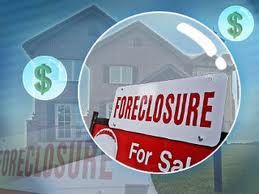 In a recent article published by Bloomberg View, Harvard economics professor Edward Glaeser argues that the time may be ripe for the second administration of President Barack Obama to stop stimulating the housing economy, at least through the use of tax measures and the two government-sponsored entities in charge of mortgage investing, the troubled Fannie Mae and Freddie Mac. By continuing this pattern of economic stimulation, Glaeser believes that another housing bubble is imminent in the United States. A Bubbling Danger With the Federal Housing Administration (FHA) seemingly headed for a bailout that may cost billions, professor Glaeser thinks that the White House should have already stopped programs like the mortgage interest tax deduction and the extensive loan guarantees offered by Fannie Mae and Freddie Mac. Glaeser adds that banks that engage in mortgage origination and investment should be held to higher standards of capital reserve. Historical evidence presented by Glaeser shows that property bubbles are part of the boom and bust cycle that the U.S. has gotten used to, but that they should not have the far-reaching economic impact that the most recent bubble had. The problem with subsidizing the real estate and mortgage markets is that they become too reliant on property prices. Investors and financial institutions place their bets on future price growth because they have been enabled by government policies; when real estate prices collapse, so do they. How to Discourage Real Estate Speculation The Dodd-Frank Act may not go have far enough in holding banks liable for irresponsible mortgage lending. Glaeser contends that eliminating the mortgage interest tax deduction would be more efficient to avoid a future housing bubble. Weaning financial institutions from relying on future price growth would significantly curb speculation, but this would require some sort of price control, which would not work in a free market system. Preventing a bubble at this point may only be possible through even stricter requirements on mortgage lenders, not on mortgage borrowers. Investing and speculating in American real estate proves too irresistible for financial institutions to ignore, and by holding them fully accountable for their actions and increasing their capital requirements they would think twice before investing in housing.
In a recent article published by Bloomberg View, Harvard economics professor Edward Glaeser argues that the time may be ripe for the second administration of President Barack Obama to stop stimulating the housing economy, at least through the use of tax measures and the two government-sponsored entities in charge of mortgage investing, the troubled Fannie Mae and Freddie Mac. By continuing this pattern of economic stimulation, Glaeser believes that another housing bubble is imminent in the United States. A Bubbling Danger With the Federal Housing Administration (FHA) seemingly headed for a bailout that may cost billions, professor Glaeser thinks that the White House should have already stopped programs like the mortgage interest tax deduction and the extensive loan guarantees offered by Fannie Mae and Freddie Mac. Glaeser adds that banks that engage in mortgage origination and investment should be held to higher standards of capital reserve. Historical evidence presented by Glaeser shows that property bubbles are part of the boom and bust cycle that the U.S. has gotten used to, but that they should not have the far-reaching economic impact that the most recent bubble had. The problem with subsidizing the real estate and mortgage markets is that they become too reliant on property prices. Investors and financial institutions place their bets on future price growth because they have been enabled by government policies; when real estate prices collapse, so do they. How to Discourage Real Estate Speculation The Dodd-Frank Act may not go have far enough in holding banks liable for irresponsible mortgage lending. Glaeser contends that eliminating the mortgage interest tax deduction would be more efficient to avoid a future housing bubble. Weaning financial institutions from relying on future price growth would significantly curb speculation, but this would require some sort of price control, which would not work in a free market system. Preventing a bubble at this point may only be possible through even stricter requirements on mortgage lenders, not on mortgage borrowers. Investing and speculating in American real estate proves too irresistible for financial institutions to ignore, and by holding them fully accountable for their actions and increasing their capital requirements they would think twice before investing in housing.



